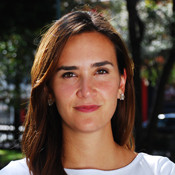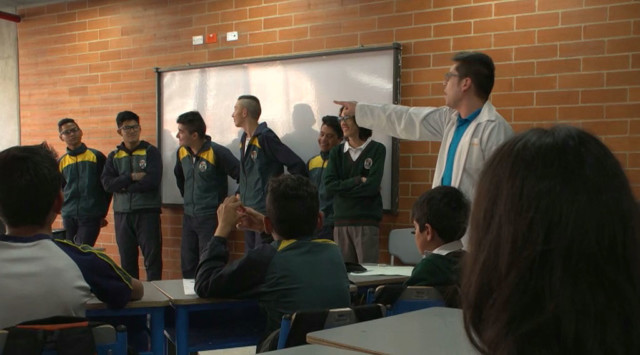Teen-aged mothers are a problem in Colombia. Bogota said 20 percent of the country’s women have babies by the time they turn 20.
Young mothers often face a lifetime of poverty. One high school is trying an innovative way to keep its students from becoming parents.
But CGTN’S Michelle Begue reports that some families say the program is at odds with traditional values.
At Gerardo Paredes high school in Colombia’s capital, 11th graders with special training are leading sex education discussions with their peers.
Today’s lesson is about bullying and sexual abuse.
This innovative approach to sex education was created by a group of teachers–led by Social Sciences teacher Luis Miguel Bermudez.
“How can math and social sciences be more important than sexual education?” said Bermudez. “It is something we are born with and it is with us all our life. But instead it is seen as a taboo subject.”
The shift in focus has had dramatic effects. This school went from its peak of 70 teenage pregnancies in a year to zero since the beginning of 2016.
The reason, Bermudez said, is that sex education is now a priority. Not only are there two hours’ worth of courses each week, there is also an office where students can go for private counseling.
“Our teachers are experts,” Bermudez said. “We have psychologists, and we decided to unite and create our own curriculum on sexual education that addresses each of the specific causes that we identified for teenage pregnancy.”
Among the problems was gender-based violence. Bermudez said boys learn from society that they need to show their manliness and strength by having many sexual partners. Girls are taught not to use contraceptives out of fear of being viewed as having loose morals.
“We saw that family planning and contraceptives goes against those values and morals of virginity that the families are expecting,” Bermudez said.
According to a government report, one out of every five mothers in the country had her first child as a teenager. The same study shows teenage mothers are also less likely to finish their education – limiting their opportunities- and perpetuating a cycle of poverty.
“There is a problem and all the adults give a solution but no one ever asks the children ‘What do you want to learn in sexual education,’” Bermudez said.
Bermudez argued empowering students to make responsible decisions is at the center of his work. And it shows.
As class ends, 11th grader Freddy identifies bullying in the courtyard and immediately mediates a peaceful conflict resolution, proving students can be part of the solution.
 CGTN America
CGTN America

